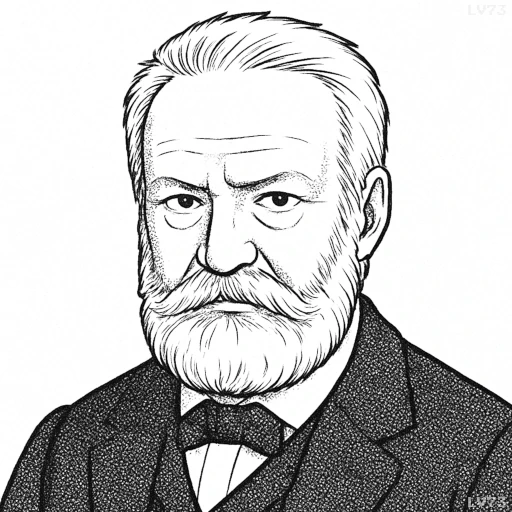“In the French language, there is a great gulf between prose and poetry; in English, there is hardly any difference. It is a splendid privilege of the great literary languages Greek, Latin, and French that they possess a prose. English has not this privilege. There is no prose in English.”

- February 26, 1802 – May 22, 1885
- Born in France
- Author, poet, playwright
table of contents
Quote
“In the French language, there is a great gulf between prose and poetry; in English, there is hardly any difference. It is a splendid privilege of the great literary languages Greek, Latin, and French that they possess a prose. English has not this privilege. There is no prose in English.”
Explanation
In this quote, Victor Hugo reflects on the distinctiveness of language and how it shapes the way literature is experienced. He suggests that in languages like Greek, Latin, and French, there is a clear division between prose and poetry—each having its own style, rhythm, and purpose. Prose in these languages is more straightforward, while poetry is marked by its elevated and artistic language. This division allows each form to stand on its own, with prose serving more practical or narrative purposes, and poetry used for more artistic and expressive purposes.
In contrast, Hugo argues that English does not have this same distinction. The language, he believes, blends prose and poetry to such an extent that they are less easily distinguished. There is, in his view, no clear separation between the two, and both forms can be expressed in similar language. This, Hugo suggests, is a limitation of English, as it lacks the elegance and structural richness that come from having a distinct prose style.
Hugo’s words reflect the linguistic and cultural differences between languages and how they affect literary expression. While English has its own strengths and beauty, Hugo believes that languages with a more defined distinction between prose and poetry offer a deeper, more nuanced way of experiencing both forms.
In modern terms, this quote touches on the unique characteristics of different languages and how they shape literary forms. It also highlights the idea that language is not just a tool for communication, but a cultural force that influences the way we express ideas, art, and emotion. While English may blend prose and poetry more fluidly, Hugo points to the richness that comes from having more defined boundaries between the two in other languages.
Would you like to share your impressions or related stories about this quote in the comments section?

